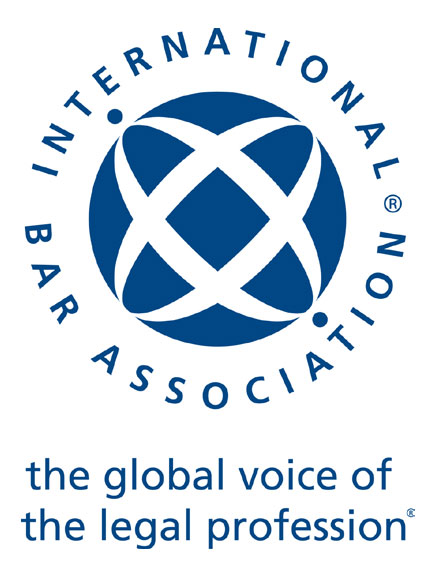 In a letter released on June 8, 2020, the Philippine Dispute Resolution Center submitted its comments to the International Bar Association (IBA) on the proposed revisions to the IBA Rules on the Taking of Evidence in International Arbitration (“Rules”).
In a letter released on June 8, 2020, the Philippine Dispute Resolution Center submitted its comments to the International Bar Association (IBA) on the proposed revisions to the IBA Rules on the Taking of Evidence in International Arbitration (“Rules”).
The revisions involved 19 rules touching on, among others, the treatment of any issues of cybersecurity and data protection, allowing a response to the request for production of evidence, removing a prior consultation with the parties before the tribunal may resolve the request for production of evidence, allowing the tribunal to request the production of evidence from third parties, translation of documents produced in response to a request for production, allowing submission of additional witness statements and additional expert reports to respond to new factual developments, and downgrading the authority of experts appointed by the tribunal to request information or to access it. The revisions were proposed by the Guidelines and Rules Subcommittee of the IBA Arbitration Committee.
In the letter, signed by PDRC Secretary General Roberto Dio and Deputy Secretary General Shirley Alinea and addressed to the C-Chairs of the Subcommittee, PDRC agreed to all the proposed changes but submitted comments on two new rules: (a) Art. 9.3, which authorized the tribunal, at the request of a party or on its own motion, to exclude evidence obtained illegally, and (b) Arts. 9.6 and 9.7, which allowed a party to request the tribunal to consider whether an adverse inference is warranted if a party fails, without satisfactory explanation, to produce any document subject of a request to produce evidence to which it has not objected or that the tribunal has ordered to be produced.
In its letter, PDRC expressed the view that allowing the tribunal to exclude evidence obtained illegally will allow it to exercise the prerogative of national courts. Moreover, there will be issues on the law applicable to determine if the evidence was obtained illegally: should it be the law of the seat of arbitration or should it be the governing law of the contract?
While the proposed rule seeks to address evidence that were obtained as a result of pilferage, dumpster diving, corruption or electronic hacking, the focus of the tribunal’s inquiry, PDRC said, should be limited to the confidential nature of the evidence and not to the manner by which it was obtained. The issue of the illegality of the evidence is a matter of public policy best left to the national courts of the country where enforcement is sought.
PDRC also wrote that expressly allowing a party to request the arbitral tribunal to make an adverse inference might encourage such requests and result in procedural issues on the propriety of the request, instead of leaving this matter entirely to the discretion of the tribunal. Since the request to make an adverse inference will be addressed by the tribunal ahead of its resolution on the merits of the dispute, it may also be compelled to prejudge the controversy ahead of its review of the entire evidence in the case.
CIAC Guidelines on the Conduct of Virtual Proceedings
PART 2
Part 1 discussed the “new normal” in arbitration because of the coronavirus pandemic and how various institutions, including the Construction Industry Arbitration Commission of the Philippines, responded by issuing practice guidelines. The authors wrote in the last issue about the tribunal’s authority to conduct online virtual case proceedings and the restricted use of CIAC premises.
Hosting or organizing the virtual proceedings
The CIAC Guidelines reminds the tribunal and the parties to seriously consider dispensing with oral hearings and to submit a case for decision on the basis of documentary evidence, especially when there is no factual issue in dispute, or written submissions of the parties.
Where the tribunal decides to hear the parties, the CIAC Guidelines requires a designated host or organizer of the virtual proceedings, who may only be the mediator, arbitrator, or the CIAC staff-in-charge. The designated host is responsible for the virtual hearing and for notifying participants with the dial-in number, the link, meeting ID and password, at least three days before the event.
The CIAC Guidelines does not require the use of any particular platform and allows the use of any publicly-available platform chosen by the tribunal after consultation with the parties, but suggests Microsoft Teams, Zoom iCloud Meetings, Skype, Messenger, or Viber as examples.
However, at least one week before the date of the virtual proceedings, the tribunal and the parties shall conduct a trial run of the platform agreed upon. During the trial run, the tribunal and the parties shall agree on the sequence of events and rules of engagement to be observed during the virtual proceedings.
The CIAC Guidelines grants the tribunal authority to terminate the virtual proceedings at any time if the tribunal finds that the proceedings are so unsatisfactory that it would be unfair to any of the parties to continue.
Documentary evidence
The CIAC Guidelines requires the parties to submit a hard copy bundle and an e-bundle of their documentary evidence to be provided to the tribunal, the counterparties, and their witnesses. The documents shall be pre-marked, clearly identified and paginated, be without any annotations or mark-ups, and the e-bundle should correspond to the hard copies submitted. The parties may also agree to share a virtual document repository provided that the parties exert best efforts to ensure the security of all the documents.
Security and confidentiality of proceedings
 Under the CIAC Guidelines, the tribunal is required to set up the virtual proceedings as private and participants are warned not to share the dial-in number, link, meeting ID, and password with third parties. Only authorized participants are allowed to join the proceedings via the use of a waiting room or similar security feature and then lock the meeting after all the authorized participants have joined.
Under the CIAC Guidelines, the tribunal is required to set up the virtual proceedings as private and participants are warned not to share the dial-in number, link, meeting ID, and password with third parties. Only authorized participants are allowed to join the proceedings via the use of a waiting room or similar security feature and then lock the meeting after all the authorized participants have joined.
Third parties and persons not authorized to participate shall not be in the same room as the authorized participants. The tribunal shall also require participants to show a 360-degree view of the room where the participant is at the start of, and from time to time during, the proceedings. If there is more than one participant in a location, or if there are individuals other than the participant in a location, all individuals in the same room shall be seated in a way to allow all such participants and individuals to be seen during the proceedings.
To prevent witness coaching, the witness shall testify while sitting on an empty desk or standing at a lectern, with the witness’ face clearly visible, without any device, laptop or computer, except that which is being used to participate in the proceedings.
The tribunal shall carefully control who may share screens, and when screen sharing will be allowed. It may authorize the recording of the proceedings using the platform recorder or any other recording device, in accordance with the CIAC Rules. No person shall record the proceedings without the express authority of the tribunal. The tribunal shall require all participants to use browser extensions that block tracking activities of applications, such as Google Chrome Adblock Plus and Firefox Ad Hacker as well as firewall software from trusted firewall security firms.
With the release of the CIAC Guidelines, construction arbitration in the Philippines is now at par with recent developments in international arbitration practice. For some time, CIAC arbitration has received criticisms because it arguably does not conform to a number of well-accepted principles in international commercial arbitration. In recent years, with the adoption by respected international arbitration institutions of rules that more or less mirror the CIAC Rules, it is becoming difficult to ignore the fact that CIAC arbitration is also in the forefront of Philippine commercial arbitration.

